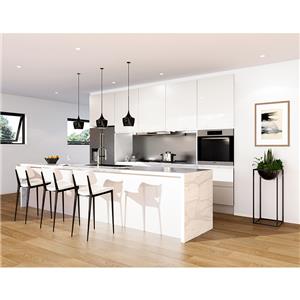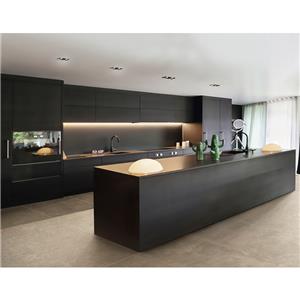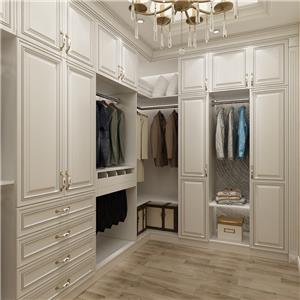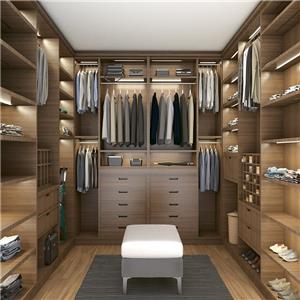Quartz Kitchen Cabinet Countertop: Pros and Cons
If you're considering renovating your kitchen, one of the most important decisions you'll need to make is choosing the right countertop for your cabinets. Quartz has become a popular choice in recent years due to its durability and stylish appearance. Like any other material, quartz has its pros and cons. In this article, we'll explore the advantages and disadvantages of using quartz for your kitchen cabinet countertops.
| Pros of quartz countertop |
Cons of quartz countertop |
|---|---|
| Durability | High price |
|
Aesthetics |
Heavy |
| Hygienic |
Limited Heat Resistance |
| Low Maintenance | Not Completely Scratchproof |
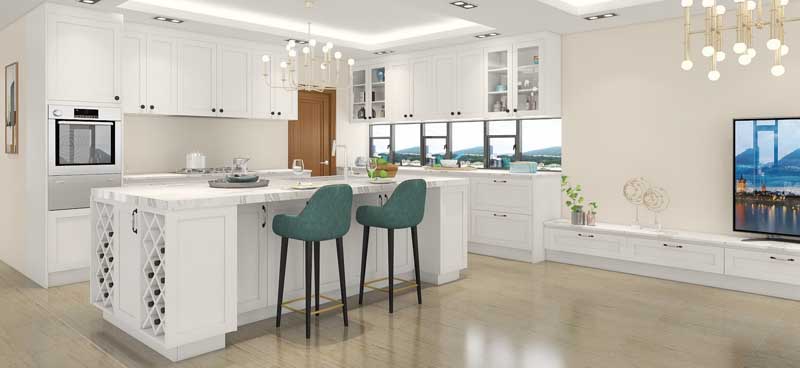
Pros of Quartz Kitchen Cabinet Countertops
-
Durability: Quartz is one of the most durable materials available for countertops. It's resistant to scratches, stains, and heat. Unlike natural stone countertops like granite, quartz countertops don't require sealing.
-
Low Maintenance: Quartz is easy to clean and maintain. Unlike other materials that require periodic sealing and polishing, quartz only needs to be wiped down with a damp cloth.
-
Aesthetically Pleasing: Quartz is available in a wide range of colors and patterns, making it easy to find one that complements your kitchen's decor. It's also available in various finishes, including polished, honed, and textured.
-
Hygienic: Quartz is non-porous, which means it doesn't absorb liquids and is less likely to harbor bacteria than other materials like granite or marble.
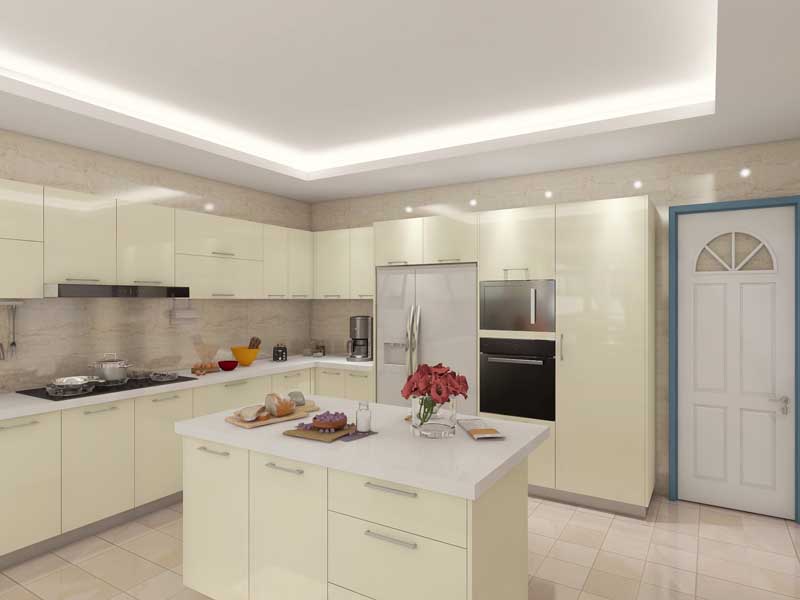
Cons of Quartz Kitchen Cabinet Countertops
-
Expensive: Quartz is more expensive than other countertop materials like laminate or tile. However, its durability and low maintenance makes it a worthwhile investment.
-
Limited Heat Resistance: Although quartz is heat resistant, it's not entirely heatproof. Placing a hot pot or pan directly on the countertop can cause damage.
-
Heavy: Quartz is heavier than other materials, which can make installation more challenging.
-
Not Completely Scratchproof: While quartz is resistant to scratches, it's not entirely scratchproof. Sharp objects like knives can still scratch the surface.
Conclusion
Overall, quartz is an excellent choice for kitchen cabinet countertops. Its durability, low maintenance, and aesthetic appeal make it a popular choice among homeowners. However, it's essential to consider the cons before making a decision. While the cost may be higher than other materials, it's longevity and easy maintenance can make up for the initial expense. If you're looking for a hygienic, stylish, and long-lasting option for your kitchen, quartz is worth considering.
Quartz Countertop Colors
Quartz countertops are available in a variety of colors due to the pigments mixed into the material. Unlike natural stone, engineered quartz is homogeneous and has a uniform color and pattern, making it easier to match tiles and slabs during installation. The appearance of the surface depends on the size of the quartz grains. Keep in mind that styles with the large grain can make your countertops look crowded.
In terms of stain resistance, even the lightest colored quartz resists stains very well.
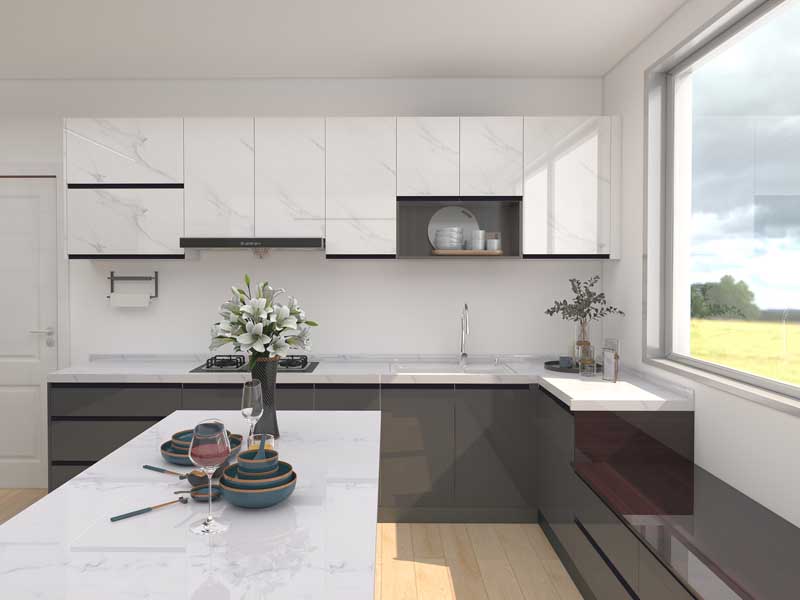
Quartz Countertop Cost
The cost of quartz countertops can vary significantly depending on the type of quartz and the size of the countertops. Generally, quartz countertops range from $50 to $150 per square foot. This cost can be broken down into two primary components: material costs and installation costs.
Material costs are the cost of the quartz itself. Quartz countertops come in a variety of colors and styles, and the cost of each type of quartz varies. For example, engineered quartz countertops cost more than natural quartz. Additionally, the size of the countertop can affect the cost; larger countertops require more material and will cost more than smaller countertops.
Installation costs are the cost of the labor to install the quartz countertop. The cost of installation depends on the complexity of the job and the skill of the installer. Simple installations can cost as little as $20 per square foot. Complex installations with intricate designs may cost up to $50 per square foot.
When deciding on the cost of quartz countertops, it is important to consider both the material and installation costs. Quartz countertops are an excellent choice for kitchens due to their beauty, durability, and low maintenance, so they can be well worth the investment.
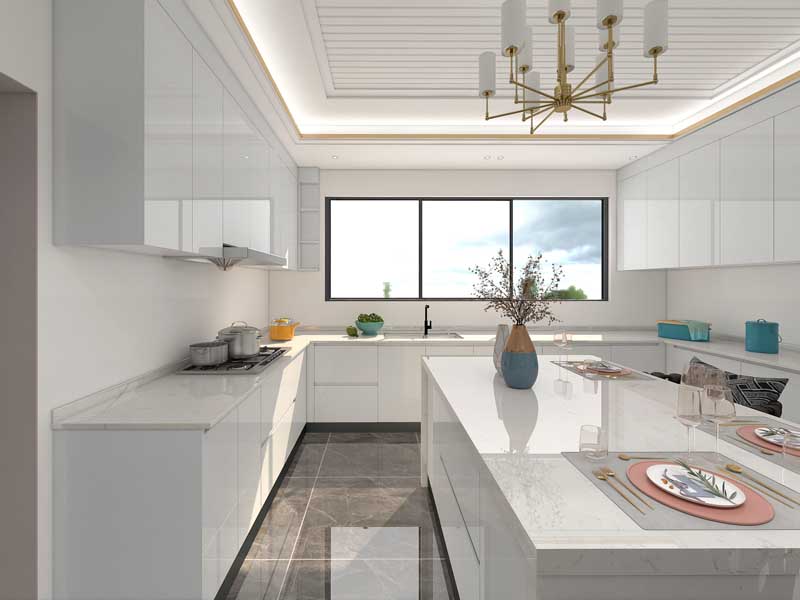
Quartz countertops FAQs
Are quartz countertops seamless in design?
Whether your quartz countertops are seamless depends entirely on the size of your kitchen and the layout of the lower cabinets. The most common maximum sheet length for quartz is 125" long x 65" wide. This means that if your lower cabinets are longer than 125 inches, your countertops must be stitched. Otherwise, you can get seamless quartz countertops.
Is Quartz Cheaper Than Granite or Marble?
No, quartz is not typically cheaper than granite or marble. Quartz is generally more expensive than granite or marble, though the cost varies depending on the quality of the material.
How do I care for my quartz countertop?
Quartz countertops are incredibly durable and require minimal maintenance. To clean your quartz countertop, simply use mild dish soap and warm water. You can also use a non-abrasive, pH-neutral cleaner such as Windex or Fantastik. You can also use a soft cloth, microfiber cloth, or a soft brush to remove dirt, debris, and food particles. Avoid using abrasive cleaners, steel wool, or scouring pads as they may scratch the surface. For tougher messes, a 50/50 mixture of isopropyl alcohol and water can be used.
Related articles
Kitchen Cabinet Materials: Total Guide
Pros and Cons of Butcher Block Kitchen Countertops
Granite Kitchen Cabinet Countertop: Pros and Cons

